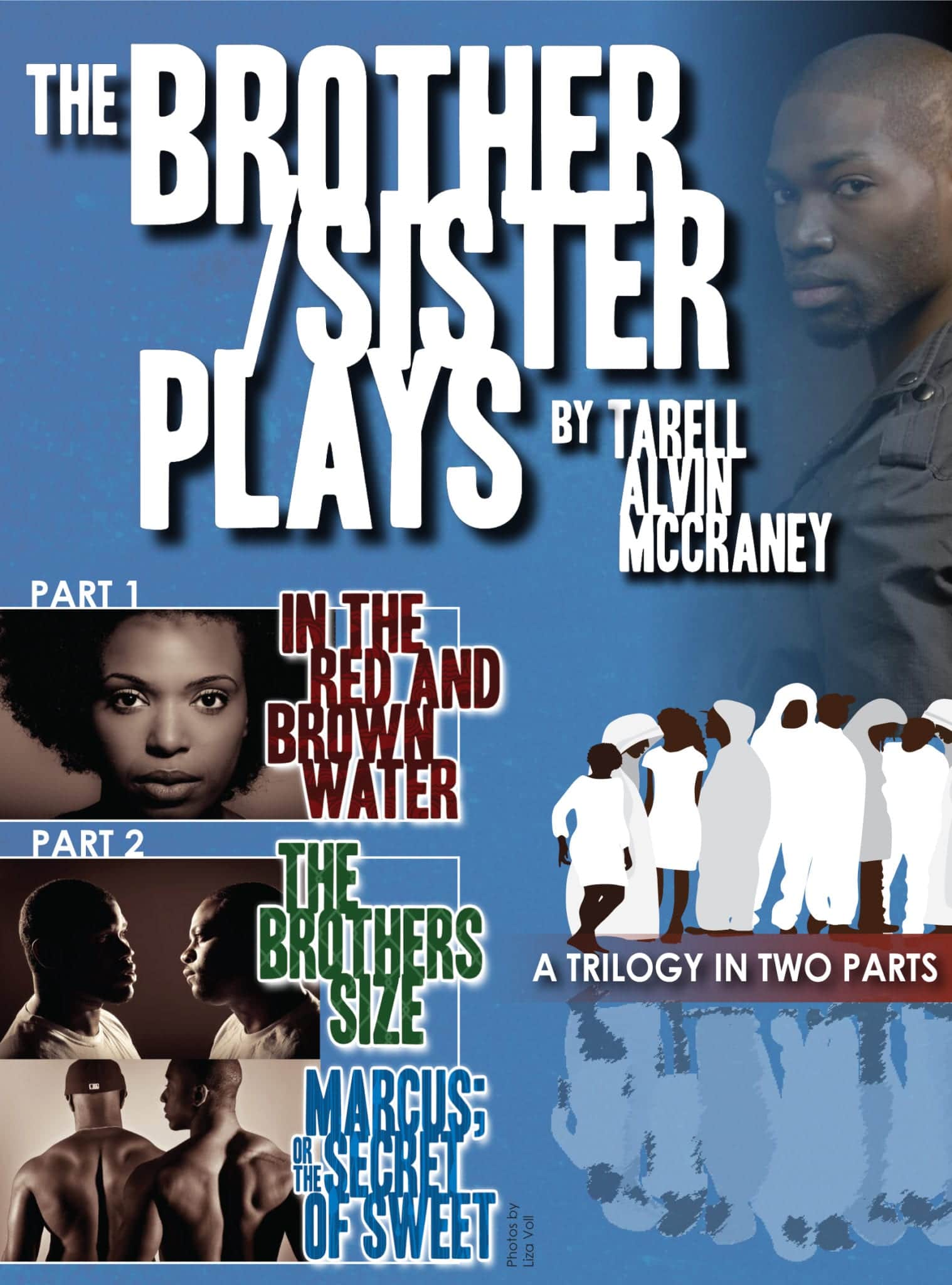This one’s deep. Really deep.
In the first of his three, “Brother/Sister Plays,” playwright Tarell Alvin McCraney has taken “orishas,” archetypal demigods from the Yoruba tradition of West Africa and reincarnated them as the complex and charismatic residents of a Louisiana ghetto.
Their story is more a slice of life than an epic of war or adventure, yet it’s told through epic similes, heighted language, prophetic dreams and sudden snatches of otherworldly music. It’s a domestic legend, epic for the community who lives and universal in its fundamental concerns. It’s told with poetry, pathos, humor and—thanks to director Megan Sandberg-Zakian—cannily simple stagecraft.
Oya (Miranda Craigwell) is the radiant avatar of the orisha of the Niger River, a goddess of wind and storms. But she doesn’t know this. As far as she can tell her only claim to glory is her speed as a runner. She’s a high school track star. When she’s recruited by a state university at the same time that Mama Moja (Michelle Dowd) her mother, takes ill, Oya must decide between family and personal ambition.
An equally tough decision looms as Oya grows into womanhood. Desperate for a child, she must choose between two suitors who have pursued her all her life. Ogun (Johnny McQuarely) is an avatar of the orisha of war and iron, similar in some ways to the Ancient Greeks’ Hephaistos. He’s a businessman who seeks a family and a life of comfort. He’s the safe choice. Then there’s Shango (Chris Leon), a version of the Yoruban thunder god, their dispenser of justice.
Shango is the sexy, dangerous choice. He’s a solider, and he’s a player. Oya may be his true love, but he also has his eye on Shun, another river orisha, played brilliantly by Natalia Naman as that cool, popular, fiercely territorial, alpha female you’ve probably learned to hate.
There’ s one more choice. She could also be guided to love by her trifling yet mysteriously prescient neighbor, Li’l Elegba, the Yoruban trickster figure (think Hermes, Coyote, Brier Rabbit). Between begging sweets from Mama Moja and getting local girls pregnant, Elegba seems to have watching over Oya. He might be able to lead her down the right path—or he might just be playing her. Hampton Fluker isremarkable in the role, shifting suddenly and seamlessly between a scamp and a seer.
You don’t need to crack a book, or even a playbill, to appreciate “In the Red and Brown Water” as a well told tale, at once fresh and achingly familiar—but its more than likely that this play will leave you hungery for more on its source material: mythology that has spread with the African Diaspora and indeed claims Louisiana as one of its homes.
At the very least you’ll want to see parts II and III of McCraney’s Brother/Sister trilogy, which will be staged by Company One‘s Summer Williams in December. I know I’m looking forward to it. The images and repeated lines of “In the Red and Brown Water” keep resurfacing in my mind like a song or a dream.
“In the Red and Brown Water” plays at the Plaza Theater in the Boston Center of the Arts through December 3.



Leave a Reply